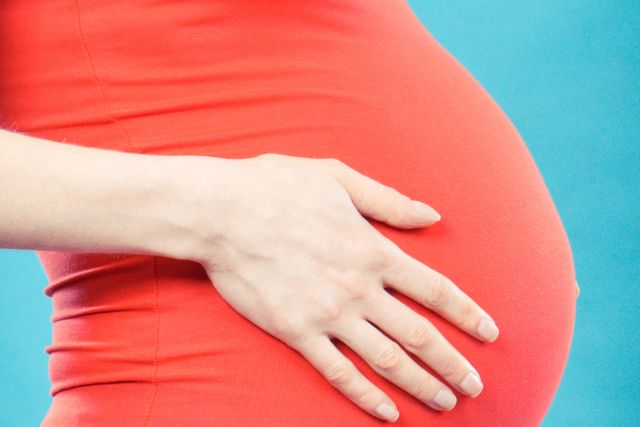Discover the easy tips on how to get pregnant fast. Explore our guide on how to get pregnant fast home remedies
So, you’re planning to have a child, congratulations!
This is your ultimate checklist on how to get pregnant fast.
For many women, the motherhood journey can be scary and sometimes slow. One study shows that about 11% of women in the United States have experienced fertility problems.
Globally, about 48.5 million couples experience infertility or delayed conception. That’s according to the Reproductive Biology Endocrinology, 2015. This is a huge number, right?
While some causes may be out of our control, others are manageable. It only requires your willingness to check on your lifestyle and sex life.
So, what can you do to get pregnant fast?
How To Get Pregnant Fast
1. Take a Pre-pregnancy Care Checkup
Whether you’re a first-time mom or it’s your second pregnancy, having a pre-pregnancy checkup should be your first step if you want to get pregnant fast.
Many women ignore this stage, yet it’s crucial.
Why?
Having a pre-pregnancy checkup can help identify any factor that could delay your conception or affect your baby.
During this visit, your obstetric care provider may do the following:
- Discuss and advise you on a suitable diet and lifestyle
- check your medical and family history for genetic diseases
- check whether you’re on any medications that can affect pregnancy
- Check and Discuss matters on sexually transmitted infections
2. Keep Away Your Birth Control
According to studies by MedlinePlus, contraception prevent pregnancy. Some contraceptives such as condoms prevent sperm from getting to the egg for fertilization. Others work by preventing the ovary from releasing eggs during ovulation.
While it may be easier to stop using condoms, it can take some time for those on depo or other medically involving birth controls to adjust.
Therefore, If you’re planning for a baby, stop using contraception for at least 1-3 months before trying. This will give your body time to clear any synthetic anti-pregnancy hormones from your reproductive system. These hormones include estrogen and progestin and can take longer to clear from your body.
You also want to keep track of your menstrual cycle which can take a while before returning to normalcy after stopping the use of birth controls.
3. Keep Track of Your Menstrual Cycle
Averagely, menstrual cycles take 28 days. But this isn’t true for all women. Some people take less time while others longer periods. It’s thus important to track your periods to understand your cycle length. You may also need to track whether you have regular or irregular periods.
But how does that even affect your ability to get pregnant fast?
Well, the hormones that regulate your cycle also play a role in conceiving and maintaining pregnancy.
When you experience hormonal imbalances due to physical or psychological issues, you may often notice a change in your cycle. Your periods can either delay or come early. This can affect your conception timings since your fertility window depends on the length of your menstrual cycle.
To track your cycle, you can choose to use a calendar or a monthly planner. If you are tech-savvy, you may want to use a smartphone app for detailed information.
4. Monitor Ovulation
Monitoring your ovulation is one of the best tips on how to get pregnant fast. After you’ve mastered your menstrual cycle patterns, it’s now time to get closer to when the fertilization occurs. Your Ovulation time.
Ovulation occurs when the ovary releases a mature egg. The egg then moves down the fallopian tube, where it can be fertilized. If sperm is present, fertilization may take place, leading to pregnancy.
You should track ovulation because that is your fertile window period. You want to make sure that all the ingredients necessary for conceiving, such as sperms, are available.
You don’t want to be caught off guard, so try to start the campaign three days earlier.
In case you’re not leaving together as a couple, make travel arrangements early. Maybe five days before your ovulation date. This gives you enough rest and accurate timing for intercourse.
5. Have Sex During Your Fertility Window To Get Pregnant Fast
If you’re trying to conceive, timing is everything. According to Dr. Karin Hammarberg, having sex close to or when you’re ovulating increases the chance of pregnancy.
For instance, having sex five days before ovulation may guarantee a 10% chance of conceiving. While having sex two days before ovulation increases your chances of conceiving to 30 percent.
This is because eggs and sperm only live for a short time. Sperms live for about five days, while eggs live for around 24hours after ovulation.
You should, thus, start having sex when you’re close to ovulation. And continue regularly, about three days a week, especially if you’re not sure of your exact ovulation day. This increases your chance of getting pregnant faster.
6.Work on Your Hormonal Balance
Hormonal imbalance is one of the main reasons for delayed conception. If you have been using hormone-based birth control methods like implants or injections for a long time, it’s likely to cause hormonal imbalances.
Likewise, it may take a considerable long period of time for your body system to clear it. Other factors that can contribute to hormonal imbalance in women may include:
- Stress and depression
- Unhealthy diet.
- Conditions like diabetes & thyroid.
- Menopause.
- Dysfunctional in the reproductive system.
It is thus, crucial that you talk to your doctor about hormonal balance tests before trying to conceive.
Can I get pregnant fast with a hormonal imbalance?
The reproductive hormonal imbalance associated with either of the partners can lead to difficulty in conceiving. In women, hormonal imbalances can cause secondary infertility, and if you are lucky to conceive, it can lead to miscarriage or preterm babies. You should thus seek medical intervention early enough if you suspect that you’re suffering from imbalances of the reproductive hormones.
What are the symptoms of hormonal imbalance in females?
Many signs can denote hormonal imbalance in women. Depending on an individual, These symptoms may include; irregular menstrual cycle, persistent mood swings, infertility, bloating, low libido, fatigue, sleep problems, irritability, hair loss, and unexplained weight gain or weight loss.
How do you fix your hormonal imbalance?
An effective hormonal imbalance treatment will depend on the primary causes. Simple lifestyle changes like a healthy diet can enhance the balance in your hormones.
If your imbalances result from prolonged use of hormone-based contraceptives, your gynecologist may recommend hormonal balancing pills or injections. The recommendation depends on which hormone is deficient. If your condition is severe, the treatment may involve hormone replacement therapy.
How long does it take to balance hormones?
Hormonal Balancing is not an overnight miracle. And it may take a while depending on the severity of the cause. On average, it may take up to 3 menstrual cycles to fully experience the benefits of bringing your hormones back into balance.
7. Work on Your Weight To Get Pregnant Fast
American Society for Reproductive Medicine suggests that underweight women may experience difficulty when trying to conceive. For instance, having a BMI of 17.5 or less means you are underweight, and you may experience irregular menstrual cycles or ceased ovulation.
Also, obese women may experience the same with lower pregnancy rates than normal-weight women. Therefore, you should visit a gynecologist before trying to conceive. This will help identify other pregnancy-related disorders that can occur due to obesity, such as thyroid disease, insulin resistance, and diabetes.
To better understand your weight, you need to consider your pre-pregnancy body mass index (BMI). This is a calculation based on your weight and height. You get your BMI by dividing your pre-pregnancy weight by your height. Better still, you can use an online BMI calculator on the National Institute of Health website.
| Pre-pregnancy weight category | BMI |
| underweight | Below 18.5 |
| normal | 18.5 – 24.5 |
| overweight | 25 – 29.9 |
| obese | Above 30 |
Obesity and being underweight can both affect a woman’s fertility. They can either lower the rate of fertility or may cause complications during pregnancy. You have a greater chance of getting pregnant and having a healthy baby if you are close to a healthy weight.
8. Ensure You Have a Balanced Diet If You Want To Get Pregnant Fast
According to the Harvard School of Public Health, changes in your diet may help prevent infertility. Also, eating as if you’re already pregnant can help improve your ovulatory function, thus preparing your body for conception.
Eat a variety of fresh fruits and dark green vegetables. This will provide you with adequate nutrients for enhanced egg quality.
Moderately incorporate plant-based fats such as avocados, olive oil, and nuts. Studies have shown that eating avocados and olive oil can triple your chance of getting pregnant. They also help reduce body inflammations while improving general fertility.
Get adequate carbohydrates from whole grains. This can be brown rice, oats, quinoa, barley, corn, and whole wheat bread. Limit processed and sugary carbs, like cookies, cakes, pastries, and white bread that can spike your blood sugar.
Also, try to get most of your protein from white meat such as fish and chicken instead of red meat. Plant-based proteins are also great when it comes to conceiving.
The Harvard University study shows that infertility increased by 39% in women who consumed animal-based protein instead of plant-based proteins. You should thus, eat nuts, beans, seeds, and other legumes in plenty for increased chances of getting pregnant.
9. Cut Back on Strenuous Exercise
Indulging in physical activities is an excellent way to prepare for pregnancy. However, it shouldn’t be strenuous. this is because vigorous exercises can inhibit ovulation and reduce the production of the hormone progesterone.
If you have a healthy weight and you’re trying to conceive, consider cutting back on strenuous exercises to less than five hours a week
According to the Women’s health office (OASH), Exercising too much can cause missed menstrual periods. It can also make your periods stop entirely.
“Irregular or missed periods are more common in athletes and other women who train hard regularly. But if you haven’t worked out in a long time and suddenly start a vigorous fitness routine, your period could stop or become irregular.” the study indicates.
Walking, swimming, yoga, and other moderate exercise are popular with pregnant people. If you’re not already exercising, talk to your caregiver for the best workout tips.
10. Eliminate Stress If You Want To Get Pregnant Fast
Dr. Domar, a fertility researcher, once commented that “your body is smart enough to tell that stress periods aren’t good times to have a baby.” So if you’re planning to have a baby soon, check and control your stress levels.
A study by the National Institutes of Health indicates that stress can contribute to delayed conception. In their study, they used the presence of alpha-amylase. A saliva-related substance that is secreted when one is stressed, to gauge how the level of stress affected conception in women.
They found out that 25 percent of women with the highest alpha-amylase were12 percent less likely to conceive compared to women with the lowest alpha-amylase concentrations.
Also, the Boston University School of Medicine study indicates that stress can delay conception and decrease fertility in women.
If you’re trying to get pregnant faster, consider being at peace with yourself, as stress can hinder your pregnancy goals.
11. Quit Smoking To Get Pregnant Fast
According to fertility specialists Sarah Vij, MD, smoking impacts fertility for both men and women. In men, it lowers the sperm quality making it hard to fertilize an egg. While in women, it compromises egg quality.
A study by the American Society for Reproductive Medicine found out that Chemicals such as nicotine and carbon monoxide in cigarette smoke speed up the loss rate of eggs. This can delay conception or bring about early menopause in women smokers.
Women who smoke do not conceive as efficiently as nonsmokers. Their Infertility rates increase by about twice the rate of infertility found in nonsmokers. And, the risk even increases with the increased number of cigarettes smoked daily. You should, thus, quit smoking if you’re planning t get pregnant fast.
12. Cut on Your Alcohol Consumption
According to Mayo Clinic, heavy drinking can increase the risk of ovulation disorders. This disorder can delay or make it hard for you to conceive.
One study found that heavy drinking may cause changes in your ovulation, cycle regulation, and ovarian reserve. Sometimes the alcohol damage can be fatal and may prevent proper implantation in the uterus.
This may result in an increased rate of early pregnancy loss or resorption even before you realize that you are pregnant. Hence If you’re planning to get pregnant, you should consider avoiding alcohol altogether.
13. Incorporate Seeds In your Diet
A variety of seeds, such as pumpkin seeds, contains non-heme iron and can boost conception. Although there is no direct link between conceiving and the seeds, some studies found that women who regularly consumed this iron were 40 percent less likely to have trouble getting pregnant than those who did not consume it.
For increased sweetness, you can roast pumpkin seeds and mix them with roasted groundnuts!
Related: This is All You Need To Know About Seed Cycling for Hormonal Balance & Menstrual Cramps
14. Eat Lots of Blueberries
Blueberries contain anthocyanin phytonutrients. This is a natural compound that can increase the conception rate. They also contain antioxidants and anti-inflammatory elements, essential in boosting fertility.
The phytonutrients in blueberries can boost ovulation and enhance the production of healthy eggs.
They are also loaded with fiber, folate, and vitamin C. These help weight balance for an easy conception and proper fetal development.
Consider eating lots of colorful fruits such as blueberries, raspberries, pomegranates, and strawberries. Not only do they have vitamins and fibers for your body, but also antioxidants that can boost your fertility.
15. Stop Douching at Least a Month Before Trying
Douching involves flushing your vagina with plain water or a mixture of other substances like baking soda.
This exercise disrupts the balance between the good and harmful bacteria that ensures a healthy virginal environment.
Doctors warn against douching for people who are trying to conceive. This is to ensure that you maintain the suitable Ph. necessary for sperm survival while guarding your vagina against irritations and infections.
One study shows that women who douched were 30% less likely to conceive in a month than non-douches. This is because douching disrupts the natural functioning of your vagina. Office on Women’s Health warns that douching can delay pregnancy or cause a higher risk of early childbirth.
16. Curb the Caffeine
Female fertility may not seem to be affected by caffeine intake, especially if it’s below 200 milligrams a day.
However, significant maternal caffeine exposure may lead to delayed conception. Also can cause decreased fertility or miscarriages. That’s according to Biology of Reproduction, Oxford Academy.
You should, thus, consider reducing your coffee intake to one or two cups or 6- to 8-ounce of coffee a day.
Related: 13 Common Mistakes Every Woman Should Avoid During Pregnancy
17. Learn a Bit About Age-Related Fertility Declines
Biologically, fertility declines with age. Women in their twenties are more likely to conceive faster compared to women above 35 years.
Also, the risk of miscarriages and pregnancy-related complications increases as you grow older. And, they get prominent as you approach menopause.
You should, thus, take note of your age bracket when trying to conceive. If you experience delays, consider checking with your fertility specialist for a professional opinion.
Know When to Seek Help
For most couples, conceiving happens within the first year of their trying. However, if you have had frequent unprotected sex for more than a year, or you’re younger than 35 and in good health but have not conceived, then it’s time to seek medical help.
Also, note that fertility affects both men and women. So it would be wise to seek help as a couple.
Takeaway
The best way to act when you’re planning to conceive is as though you’re already pregnant. Take care of your sex life, physical exercise, and diet. Sometimes you may get pregnant within the first month of trying, while other times, you might have to wait longer. All in all, keep trying until you get it.
Alltimemommy wishes you nothing but the best as you embark on your pregnancy journey. Kindly share your experiences, such as what worked for you or how long you’ve waited, and let’s encourage each other.
It’s always a pleasure to hear from you!
DISCLAIMER The information contained in this post is for general information purposes only. I’m not a health practitioner and as such, this information should not be used as a substitute for consultation with your professional service provider.



